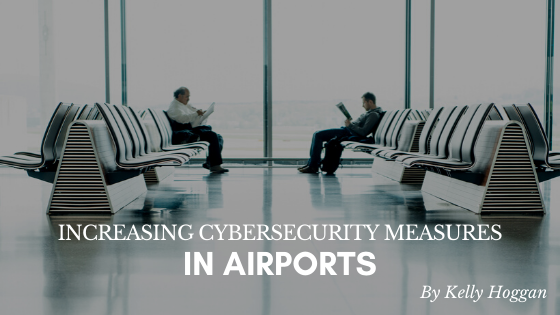In previous posts, we have highlighted the need for heightened cybersecurity measures in the field of aviation security, especially in airports. The frequency of cyberattacks and data breaches that occur in airports is concerning, and implementing stronger cybersecurity practices will help prevent and deter future attacks.
Types of Cyber Threats
When it comes to aviation security, there are a few kinds of cyber threats as categorized by the United States government. These include cybercrime, commercial espionage, political/military, and disruption. Cyber attacks may target information such as credit card data or sensitive documents pertaining to airport budgets or that which relates to the government. Other cyber threats may aim to affect consumer trust by disrupting airport services or corrupting data. The intent behind cyber attacks varies, but for airports, maintaining security on a physical and cyber front must be a priority in order to support optimal functionality, trust, and sanctity.
Technological Advancements
As the aviation industry continues to develop in order to facilitate better passenger experiences, heightened security, and more efficiency overall, the implementation of new and advancing technology is imminent. Smart solutions such as facial recognition technology, automation, navigation systems, and IP-based security monitoring are being considered and integrated into existing security measures. While these advancements are used to improve the experience of passengers and enhance the performance of aviation personnel, a high degree of interconnectivity can pose an additional threat.
Without sufficient cybersecurity measures in place, airports will be at a higher risk of enduring a cyberattack with little to no protection in place. This means that a hacker or cyber-terrorist could expose crucial data such as personal passenger information and secure airline data. Prioritizing cybersecurity in future airport development will prove to be essential for the well-being of passengers and personnel alike.
Proactivity
One of the key elements to any cybersecurity initiative is proactive measures. Preventing and deterring cyber attacks is as important (if not more so) as accounting for damage that has already been done. Most airports have some sense of the need for cybersecurity, but understanding how important it is to have measures in place to deter future attacks is not as widespread as it needs to be. Hiring cybersecurity professionals, identifying the most vulnerable aspects of a given airport, and conducting a thorough assessment of past and present risks will prove to be invaluable to airports working to improve their existing cybersecurity measures.


